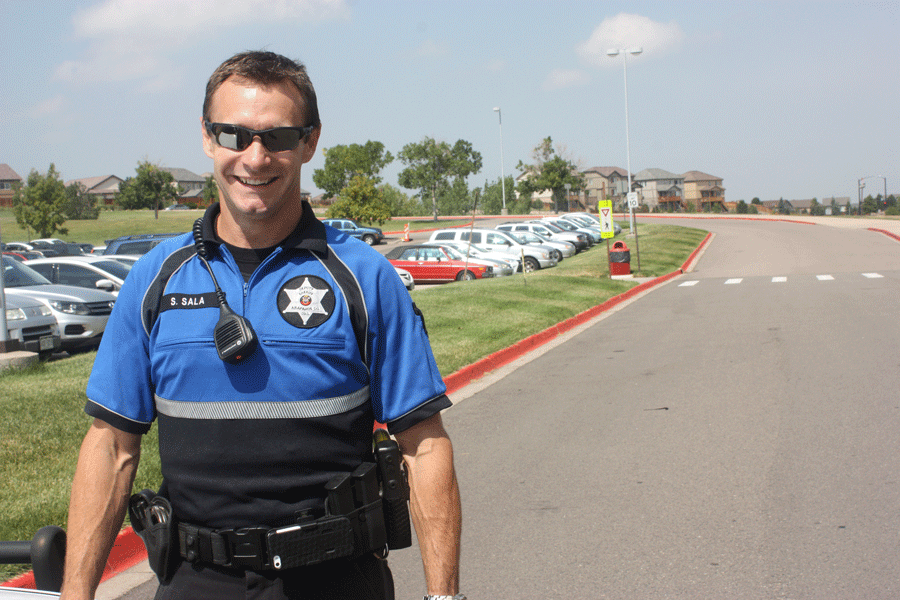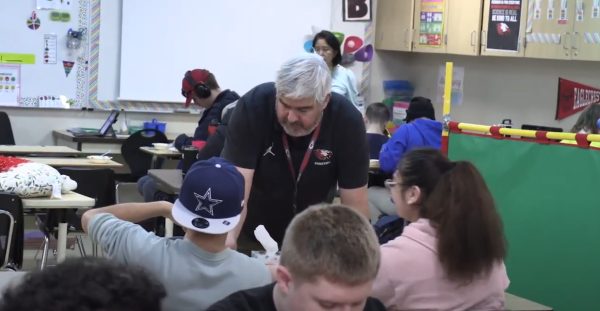Striving for Safety and Security: Our New Student Resource Officer
Handcuffs, bullet proof vests, a shiny badge, and white cars with red and blue flashing lights are all representative of police officers. Day in and day out, men and women alike patrol our city to keep an eye out for criminals and save us from some of life’s biggest nightmares. However, their purpose lies beyond the city — they are placed in schools as well.
Officer Sam Sala started his career as a patrol officer but eventually made the switch to the position of a School Resource Officer (SRO), something he dreamed of doing since first becoming a cop.
“I have kids of my own, and, growing up in Colorado, I know our track record and what our history is as far as school violence,” he said. “I wanted to be a part of changing that and help make schools safer.”
His current career, however, wasn’t what he initially planned for his life. Sala attended Metro State University for marketing in hopes of landing a spot as a marketer for snowboarding companies, another passion of his. While this dream didn’t quite turn out as planned, Sala believes studying marketing contributed some necessary communication skills to his job as a police officer.
“That marketing degree helps when talking to people because not everybody wants to talk to law enforcement about the things you have to talk to them about,” he said.
In fact, this wedge between society and our police officers is a common problem today. When we see the uniform, we see criminal justice. And while charging people with crimes is a very real responsibility for officers, both inside and outside schools, Sala’s goal is far from just that—he strives to educate teenagers.
“A lot of education is what we try to do. Teachers have a curriculum and we sort of do: the law. We [just] don’t have to format it in a certain way,” he said.
He believes that being an SRO comes down to three main areas: law enforcement, informal counseling, and safety and security and that the hardest part truly boils down to having to charge teenagers with crimes.
“I have no choice. I’m not really here to do that. That’s not what we are here for. We have to. We’re cops,” Sala said. “But that’s not what we like to do, and that’s not why we’re here.”
For him, the real reward comes when the students that he works with later acknowledge that the measures he had to take to help them work through their problems mattered.
“I’ve had kids that I’ve really had to work hard with that were going down the wrong path and turned it around,” he said. “Then they come back to me and say ‘Thanks, what you did really made the difference between me going to college or winding up in jail.’ That’s kept me motivated.”

Kendall Ungerman, senior, became a staff member of the Eagle Quill her sophomore year and has since then worked her way to the editor-in-chief position...







